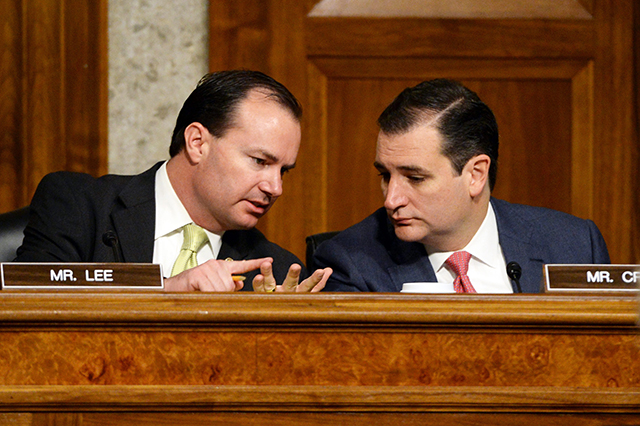Yesterday, Senators Ted Cruz (R-TX) and Mike Lee (R-UT) took an important step in ensuring that the federal government respects the freedom of states to make marriage policy in the wake of last summer’s Supreme Court decision on marriage.
The Senators introduced the State Marriage Defense Act of 2014 (S. 2024), which would require the federal government to look to the laws of the state where citizens reside to determine the definition of marriage. It states that the term marriage shall “not include any relationship which that State, territory, or possession does not recognize as a marriage, and the term ‘spouse’ shall not include an individual who is a party to a relationship that is not recognized as a marriage by that State, territory, or possession.”
>>> Check Out: Fight Poverty by Strengthening Marriage
Representative Randy Weber (R-TX) is sponsoring the House version of the legislation (H.R. 3829).
Introduction of the bill comes just days after Attorney General Eric Holder announced a new Department of Justice policy regarding marriage: “[E]ven in states where same-sex marriages are not recognized, the federal government will not use state views as a basis to object to someone in a same-sex marriage invoking this right.” Earlier this year, he announced that the federal government will recognize the marriage licenses of same-sex couples in Utah—even though the state had announced that it would not.
Both actions highlight the need for the federal government to respect state marriage laws.
Last summer, when the Supreme Court invalidated parts of the federal Defense of Marriage Act (DOMA), the Court reaffirmed that “the significance of state responsibilities for the definition and regulation of marriage dates to the Nation’s beginning; for ‘when the Constitution was adopted the common understanding was that the domestic relations of husband and wife and parent and child were matters reserved to the States.’” The states remain free—and should continue to remain free—to define marriage as the union of one man and one woman.
The Supreme Court ruled against portions of DOMA because, the Court claimed, the federal law “put a thumb on the scales and influence[d] a state’s decision as to how to shape its own marriage laws.” It decried that DOMA created “two contradictory marriage regimes within the same state.”
But the actions of the Obama Administration earlier this summer and then again last week create two contradictory regimes as they redefine marriage for federal purposes even in states that retain laws that reflect the truth about marriage as the union of a man and woman. Redefining marriage will entail high social costs. Thus all Americans should insist our laws embody the truth about marriage. And the federal government should respect it when state laws do so.



























